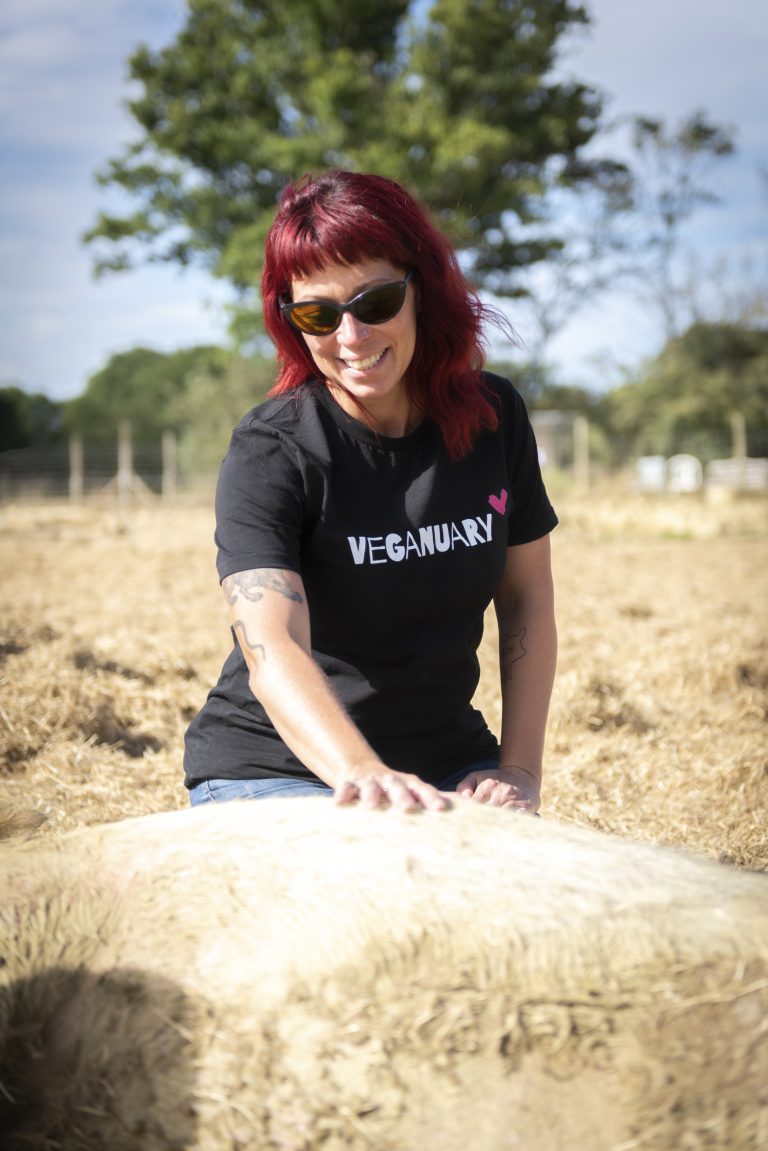Dr. Toni Vernelli








From PETA protests to grassroots campaigns to close down laboratories, and from getting out in the fields to stop animal hunting to undercover investigations in farmhouses, Toni has been on the front line fighting for animal rights over the past 30 years. What drove her into Veganuary was that the focus was on the positives rather than the cruelty – an encouraging, non-judgemental, and inspiring space to explore change in diet and thinking. That, and also the massive impact it has had worldwide on getting people to try vegan food.
Some people will be motivated to end the cruelty, some by the health benefits or nice recipes to try. So we really need all of it.
Her conclusion is that you definitely need both: “All those other groups that I’ve worked for and that type of campaigning are really important. But I think you also need positive campaigning, or simply a variety.” In 2022, indeed, a survey during Veganuary identified animals and their well-being as the leading motivator for taking part in the challenge. Conceived in 2014 by Jane Land and Matthew Glover, Veganuary encourages people and businesses to turn plant-based for the month of January and beyond. Seven years ago, when the campaign took place for the first time, only 1,280 people signed up. In 2022, it was more than 629,000. Over the next five years, they aim to make powerful strides toward a world where being plant-based is the norm rather than the exception.
If I could go back to my younger self, I'd say that Burger King now stocks vegan bacon double cheese burgers, as a commitment to being 50% plant-based by 2030. Because at 18, I'd never have believed that was possible.

For Toni, a defining moment in her career came two-fold. First had a lot to do with her dad being a butcher. “I remember being 7 years old and going to an animal farm for the first time. There were cows, pigs, chickens, and I fell in love with them all, just like I loved my dog. To me, there was no difference between them.” But she quickly made the connection to what she ate and hadn’t wanted to eat meat ever since. It was not always entirely in her hands as a child, so meat continued to be in her diet until she left home and became vegetarian at 19 years old.
A second defining moment she recalls was a school assignment where their task was producing a week’s meal plan on a vegetarian diet. 15-year-old Toni turned to her teacher in awe: “What, you can live without eating meat?” The words from her teacher stuck with her: “Yeah, of course you can; I’ve been a vegetarian since the 60s!” Mindblown by the encounter with the first vegetarian she’d ever met, she kept thinking: “Why does anyone do it if you don’t have to do it to survive?!” Being vegan for more than 30 years since then, Toni is now the one who serves as an inspiration to others.
You need to advocate at a steady pace, have time off, do things that you enjoy – don't always be thinking about the suffering that's going on.
How does she keep herself in check, after decades of activism? “The real key is to keep reminding yourself that you’re no good to the animals if you drop out of activism. So you have to do it at a sustainable pace, and that’s really hard. In the beginning, you’re just so passionate about it and want to tell everyone and have no rest until animals are no longer suffering – but if you carry on like that, you will completely burn out, and you’ll just drop out, and then you’re not doing anything to help animals anymore.” For Toni, running with her music on is a big release. “It’s a form of meditation, when you have to go through hours of footage of animal suffering on farms to put together one campaign video, and sometimes I just need my brain to sort of escape from my body through movement,” she admits. Weightlifting and yoga have the same therapeutic effect on her.
We would be a lot nicer to the non-vegans out there if we remembered we were one of them once.
She’s also learned to practice patience. “I always try to put myself in the shoes of the people I talk to and get some perspective.” She asks herself: “Would this argument, or this behavior, have persuaded me to change, when I was still a meat eater? How would a pre-vegan me have responded to this ad, slogan, or argument? Would this have persuaded me, or would it have put my guard back up, would I have gotten defensive, would I have felt attacked and shamed, which is never a good place to motivate someone to change? Then I think maybe we’d all be a little bit nicer to the non-vegans out there, if we remembered we were one of them once.” She knows it’s not always easy, especially hearing the worst arguments from people as a justification for why they do something, but exercising compassion has been a huge game-changer in her leadership.
“Easy – peanut butter, hands down. If I could only have one thing the rest of my life, it would definitely be peanut butter.”
“Change of Heart by Nick Cooney – bit of a dodgy character, it turned out, but the book itself was great advice for activists. It’s about how actual behavior change works, and if we want people to move to veganism, this is the way we should be doing it – have them take moderate steps rather than say, “Go vegan now!”
“…my superpower would be flying. I find birds fascinating – when you watch them fly, it just looks so effortless and I wonder what that would feel like. Just to be able to jump off a building and let the air carry you. It just looks so freeing.”
“I’d be a lawyer, a solicitor defending people who really need it. Particularly the people from disenfranchised backgrounds who don’t have access to good legal representation. I think it’s just too easy for society to lock up poor people who have to resort to violence or crime in order to live, or just people who are victims of circumstance and end up turning to those sorts of things, because they don’t know anything else.“
“Apart from exercise, I’d say music. Just putting on headphones, and dancing and singing in my kitchen can give me so much joy; it’s such a primal release. Singing out loud, when no one can hear you – because I’m a terrible singer – can really just give you that completely unfettered joy.”